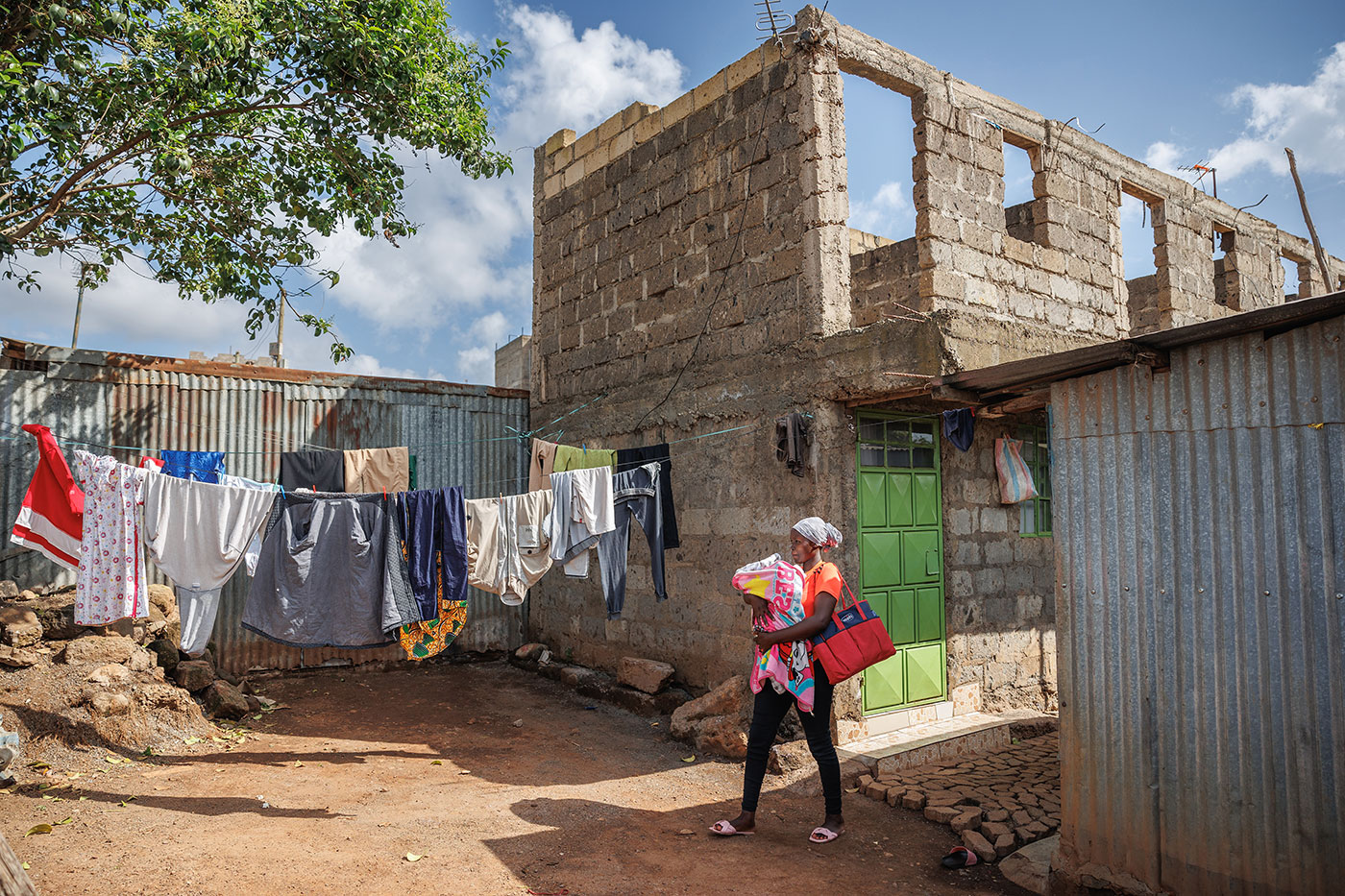‘Motherhood’ is synonymous with a magical time in many women’s lives. But the journey through pregnancy looks vastly different for women depending on where they are, who they are, and the level of support – both clinical and social – they receive throughout. In Kenya, many underserved women lack access to essential information about pregnancy and postpartum to make informed decisions when and where to seek care, and some experience disrespect or abuse when they reach the facility just because of their age, or circumstances. Only 8% of women in Kenya’s lower wealth quintiles are able to access maternal health services of adequate quality.
The theme for this year’s International Women’s Day is #BreakTheBias, inciting the global community to raise awareness against gender bias and take action for equality. But what does this look like in practice? Here’s three things we’ve seen work to #BreakTheBias in maternal health to ensure all mothers and their families – regardless of age, location, or economic means – are able to experience childbirth safely and with dignity.
1. Health providers can be trained to #BreakTheBias for mothers in hospitals and health facilities.
All health providers need the right clinical skills to avert or mitigate emergency situations like postpartum hemorrhage when they happen. But high quality care for mothers also means respectful care. Disrespectful care takes many forms, including discrimination, non-consensual or non-confidential care, and physical and verbal abuse, practices that violate a woman’s rights and discourage repeat visits to a facility, putting mothers and newborns at risk. Alongside skills-training, our peer-to-peer mentorship model – MENTORS- takes a holistic approach to embedding respectful care practices at the facility, including modules on communication with patients, maternal bereavement, and human rights.
Loise Nzilani Muthami, Head Nurse at Makueni County Referral Hospital and program mentor believes respectful care generates patient provider trust.
Strong communication and a good attitude is everything. You could be the most competent midwife in the world, but if you lack communication skills, you’ll lose your clients. We’ve seen that by making concerted efforts to improve our attitudes to mums, they’ll always use and trust our services.’
2. Women’s voices are the lynchpin to improvements in quality of care, but they cannot shout into a void
Mothers are the experts of their own healthcare journeys, but despite political commitment to advance gender equity in Kenya, they’re too often left out of decisions that impact their health. Few formal mechanisms exist to capture their feedback on the care they receive beyond ‘exit interviews’, which are costly, un-anonymized, and tricky to scale. Our digital health tool PROMPTS routinely collects mums’ feedback on respectful care and clinical quality and shares the data with hospitals and health management teams, giving them accountability to improvements that meet mums’ needs.
Nurse Margaret Kandie has seen firsthand how routine patient feedback impacts service delivery at Ngoro sub-county Hospital.
Before, we had little to no communication between our clients and our providers. We didn’t know what our services looked like to the community- only what patients said to nurses during consultations which wasn’t a lot. The feedback from PROMPTS helps us see what the gaps are – not just within service delivery, but also issues like clients waiting in queues and never being seen. We’ve taken action, with more service providers to help with queues, and mums receiving more consistent information during ANC .’
3. Digital health tools have the potential to make women agents of their own health outcomes, but must be made inclusive.
The growing availability of digital health tools in many low-resourced areas is encouraging, but across social, geographical, economic subdivisions their accessibility is less clean cut; women are ~14% less likely to own mobile phones than male counterparts, one in three people in rural areas lack access to mobile networks in LMICs, and further ‘access gaps’ exist across religious and ethnic groups, linguistic minorities, and persons with disabilities. Thoughtful design and deployment of digital tools can help bridge these gaps; like using inclusive technologies that don’t transfer cost to the end-user (our digital health companion PROMPTS runs off SMS which is widely accessible and cheaper than buying data), or engaging women with digital tools through sources they already trust (eg. using Community Health Workers to incentivize hard-to-reach women to take up and use mHealth services that put them in the driving seat in their own health outcomes).
4. Maternal health services must account for context and age-specific nuances to be relevant.
To design an effective maternal health intervention is to recognize that all women are different, with varying needs depending on age, familial set-up, gestation stage, clinical history, or location. For example, we found in adapting PROMPTS content with mums that messages suggesting newborns should be read stories were prohibitive for women without the financial means to buy books, in the same way that encouraging a mum to eat carbohydrates like pasta and porridge wouldn’t resonate with a woman who couldn’t find these at her local market.
Similarly, age brings with it new social and contextual considerations. Research Jacaranda conducted as part of a USAID funded urban health project in Nairobi identified adolescent mothers in Nairobi’s informal settlements as facing significant social stigma from neighbors, classmates, and health providers, leading to further explorations into whether age-relevant group ANC could serve as a forum to both incentivize care seeking and offer peer-to-peer social and moral support.

International Women’s Day is an opportunity to not only celebrate the manifold achievements of women, but also identify persistent issues and gaps impacting women and take proactive steps to address them. We are proud to work with and for a diverse cross-section of expectant and new mothers across Kenya to reverse persistent bias in maternal health systems and transform health outcomes for those who need it most.

